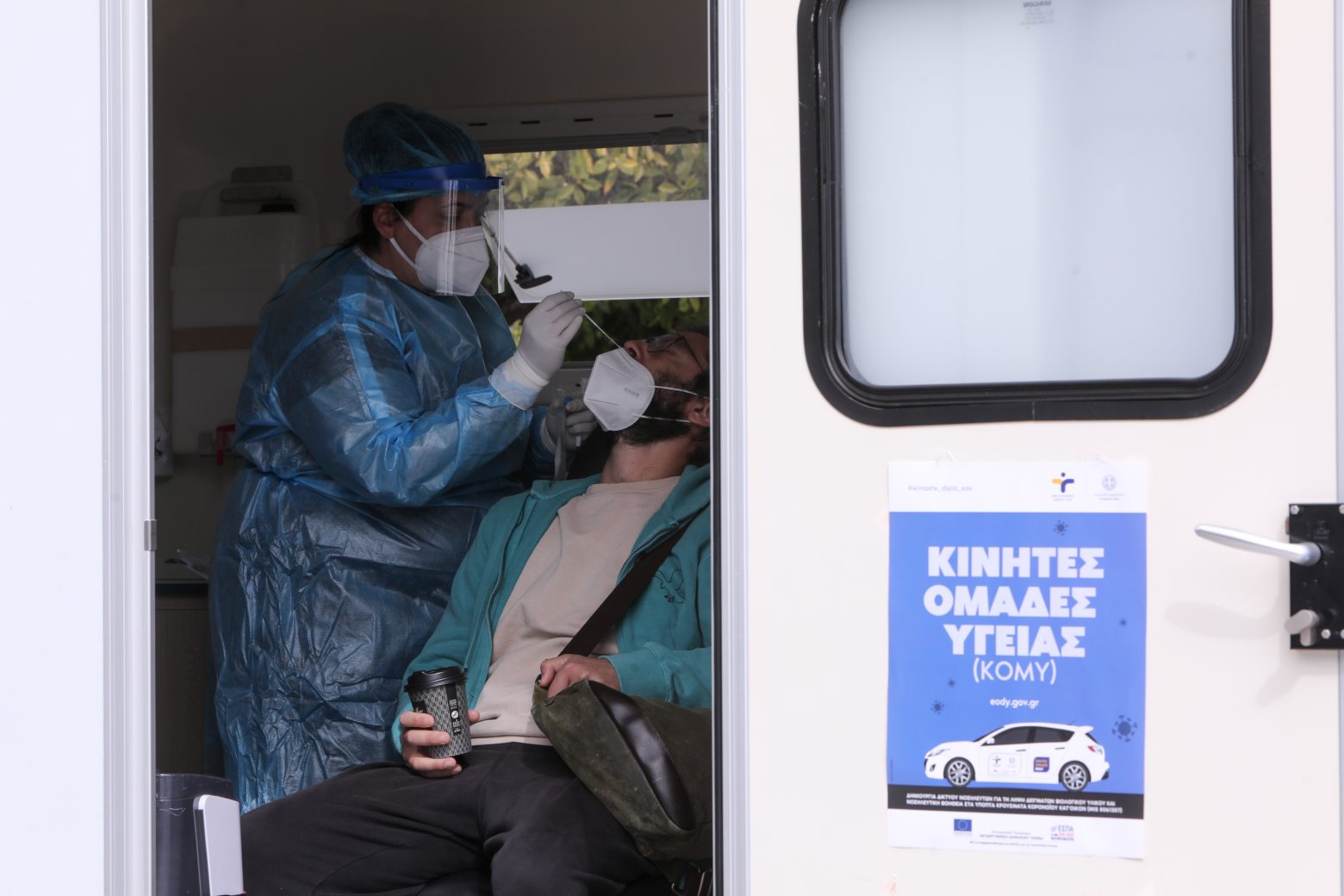The Corona virus Despite optimism about “Omigran” and its morbidity, the “siege” of the country continues. However, experts in Greece and around the world point out that the new variant of the corona virus has not yet opened all its “sheets”.
Remember that EODY today Announced 24,246 new cases have been identified, while another 77 of our fellow citizens have died and a further 670 have been infiltrated.
The state of health in the country, as expected, led to an extension of the measures announced by the government. In particular, the Ministry of Health announced an extension of the existing measures to at least one week following the advice of a panel of experts previously convened.
Scientists who have studied the latest epidemiological data in the country believe that the measures taken to reduce the epidemic that took effect in the last days of 2021 should not be differentiated, which eliminates the hope that music will return to focus and entertainment.
Related Report of MEGA
“Omigron” – the risk of re-infection does not close its cycle
“Bell” on the Omigron variant was commissioned by the Assistant Professor of Virology at EKPA and a member of the panel of experts. Gigas Majorginis. The professor, among others, pointed out that “Omigron” did not close its cycle, while he stressed that, according to data from the United Kingdom, the risk of re-infection with this variant is increased compared to previous mutations in the virus. .
“The best picture of re-infections comes from the United Kingdom, where the UK Health Care Agency is conducting a long-term study of this data.
Thus, it was found that the risk of re-infection by Omigron was increased, especially with the low number of cases reported, in which they were infected for the third time, not with the same strain, but with Omigron being their third re-infection. So this is something we often see.
For example, we have evidence of alpha, delta and omigron entanglement. “There is no evidence of re-infection with Omicron after Omicron and usually within 30-40 days – up to 60 days – if there is an initial infection, it is very difficult to prove re-infection.” The professor explained.
He further clarified: “It will take at least 40-50 days to show re-infection because the tests are still positive and many more days. Since Omigron is relatively new, it is not yet possible to say whether it will take at least two or three months to find out if Omigron is Omigron.
WHO warning
The World Health Organization (WHO) today warned that the Omigron variant, which is spreading at an unprecedented rate, is still a “dangerous virus” despite causing mild symptoms. (Where).
More specifically, WHO Director-General Dendrose Antonom Zebrages at a press conference, Underlined “Although Omicron causes less severe symptoms compared to Delta, it remains a dangerous virus, especially for those who have not been vaccinated.”
For mild symptoms, especially those who have been fully vaccinated or who have received a booster dose, some may conclude that the severity of the disease is low.
Risk of another infection and deadly variant
But, as Gebregesos said, “the greater the outbreak, the greater the hospitalization, the greater the mortality, the greater the number of people unable to work, including teachers and health workers, and the risks of another variant being more contagious and dangerous than” Omicron “.
“It’s not a mild disease, it’s a vaccine we can prevent,” said Mike Ryan, the WHO’s head of emergency services. “Now is not the time to give up. This virus is welcome and no virus is welcome,” he said.
Confused picture from the increase in cases
Meanwhile, new infections from Kovit-19 rose 55% last week, but corona virus deaths remained stable, according to the World Health Organization. In his latest statement For infection.
More specifically, in seven days, about 15 million new cases and 43,000 deaths were recorded worldwide.
Weekly cases increased on all continents except Africa, where they fell by 11%.
In Europe, new cases have increased by 31%, but deaths have dropped by 10%.
Good news from Norway
According to Norwegian authorities, the risk of being admitted to a hospital associated with Kovit-19 Is 69% less With the omigran variant of the corona virus associated with the delta, this variant reinforces the symptoms that appear to be less dangerous.
More specifically, the Norwegian Institute of Public Health writes in its weekly report that “preliminary analysis of data from the Norwegian data shows that the risk of hospital admission with Covit-19 is 69% lower than for delta variants compared to omigran variants.” .
Not satisfied
Based on all of the above, it is obvious that one cannot be complacent about the health situation in Greece or in the world, but there is no need to panic. As all the evidence shows, vaccines handle the new variant, which again underscores the need for everyone to be vaccinated.
However, as mentioned above, questions about “Omicron” have not yet been answered, while there is always the risk of new dangerous variants. The war on epidemics is in full swing, and we hope that war will win humanity, not the virus. Of course, everyone should be involved, especially the decision makers for all of us.


